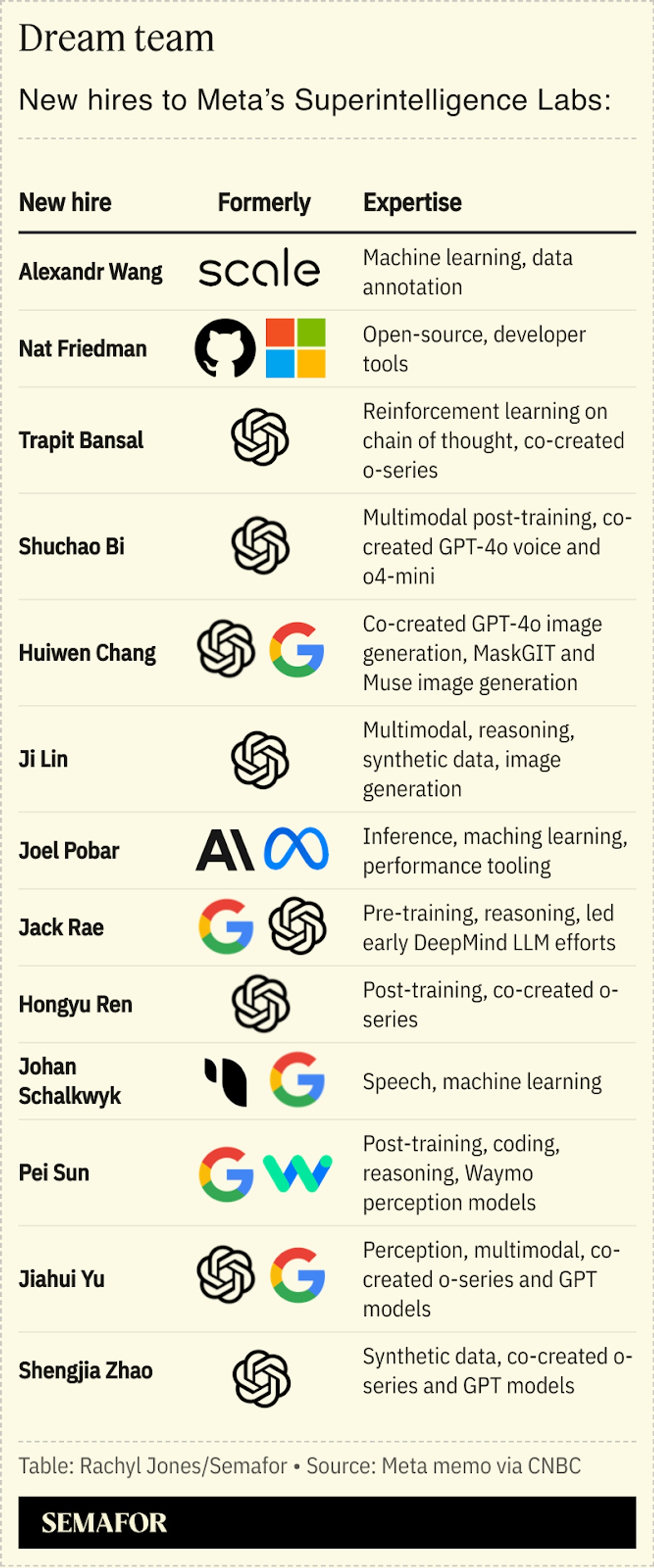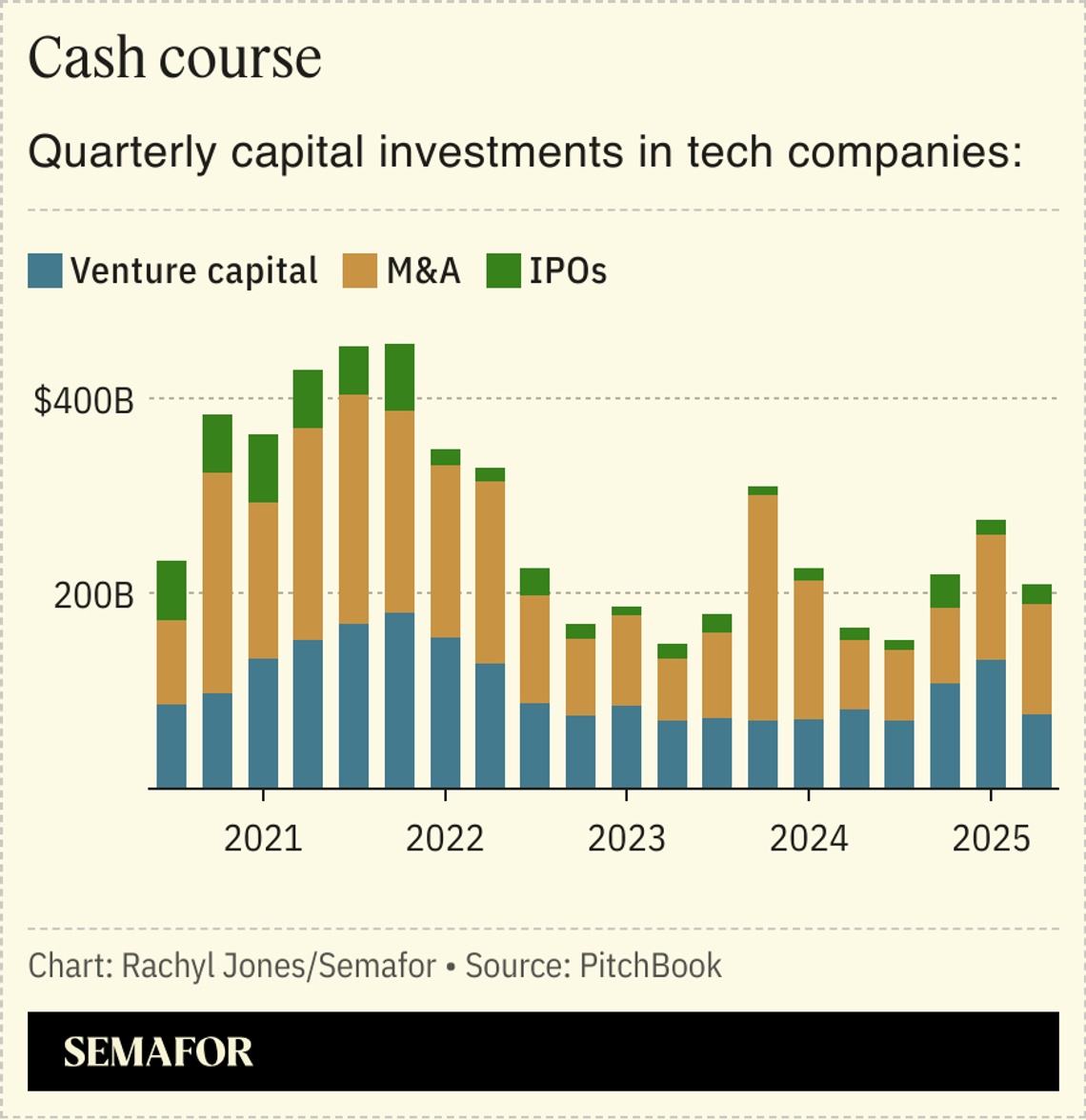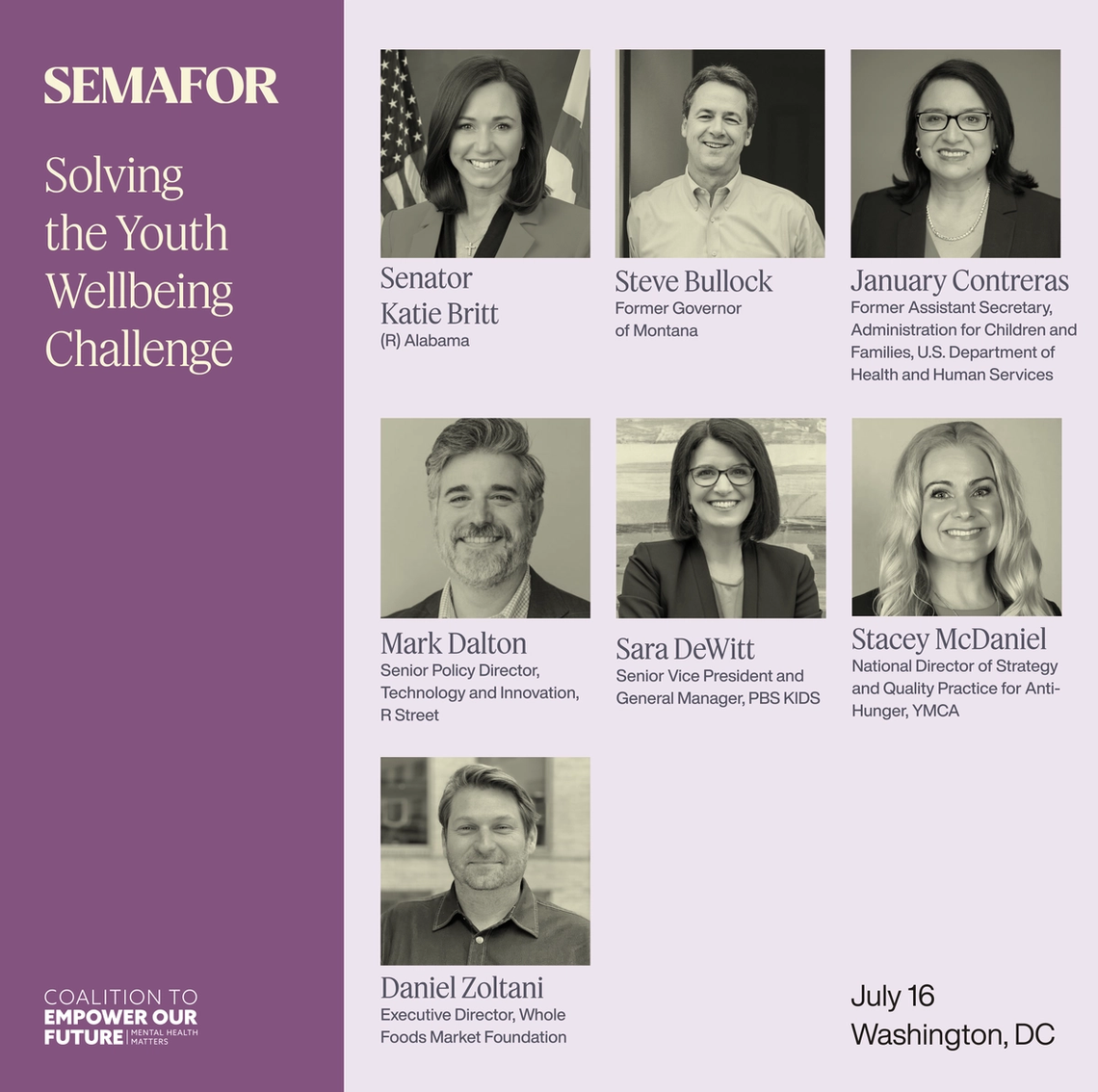| | In this edition, tech’s fingerprints were all over the GOP’s big tax-and-spending bill, but not ever͏ ͏ ͏ ͏ ͏ ͏ |
| |  | Technology |  |
| |
|
 | Reed Albergotti |
|
Silicon Valley’s fingerprints were all over President Donald Trump’s signature tax-and-spending bill, which just passed in the US Senate and could be approved by the House as early as today. But the consequential provision pausing state laws regulating AI for 10 years was stripped from the plan, even though the White House’s AI team, led by venture capitalist David Sacks, had been pushing particularly hard for it. But fellow venture capitalist Brad Gerstner, a friend of Sacks who plays poker with the All In podcast crew, looks like he’ll be more successful. Tucked inside the “big, beautiful bill” are the so-called “Trump Accounts.” More than a year ago, Gerstner began working on the concept, then called “Invest America,” which would create $1,000 investment accounts for all Americans at birth. He tapped into his extensive network of CEOs, celebrities, and elected officials to get the idea off the ground. Matt Lira, a Republican strategist who helped manage the effort, told Semafor that Gerstner treated the effort like building a startup, devoting a significant portion of his time to it. Plenty of political veterans, including Sen. Ted Cruz, one of the bill’s sponsors, have tried to create something like Invest America in the past. So, what made Gerstner successful? He picked a discreet concept that makes sense to both sides of the aisle, and worked hard to get bipartisan support and buy-in from a “CEO Council” that includes the likes of Michael Dell and Marc Benioff. It’s a good blueprint for how tech leaders can use their resources in Washington without torching their reputations and their cash. In the end, the “big, beautiful bill” is an ugly one for Silicon Valley, with basic research getting slashed and tax credits for renewable energy going away. The state AI preemption provision would have prevented a morass of complicated, confusing regulations, but that got axed, too. The tech industry leaders who went to Washington have given us great examples of how to get chewed up and spit out by the US Capitol, but also how to play a winning game there. Hopefully, we’ll see more winning in the future. One counterprogramming note: The Tour de France is coming up this weekend and I did a fun podcast with former reporter Jonathan Kaplan reliving what it was like to blow the lid off the Lance Armstrong doping scandal. Thought you might enjoy it. ➚ MOVE FAST: Five-year plan. China’s Baidu has launched an AI-powered video generator for businesses, and upgraded its search engine to accommodate voice, images, and longer queries. It also just made its Ernie LLM open source, challenging US rivals, along with local competitors. ➘ BREAK THINGS: Plan B. Hundreds of Chinese engineers at Foxconn’s iPhone factories in India were asked to return home, hurting Apple’s effort to diversify its supply chain, Bloomberg reported. Tim Cook’s AI efforts are also lagging as the firm considers using Anthropic or OpenAI to power Siri instead of its own models. |
|
Meta’s new hires offer a glimpse into its nascent superintelligence unit, aimed at making the social media company’s AI capabilities more competitive with industry leaders. The new team holds a wide gamut of skillsets, with some specific expertise in image generation, perception, synthetic data, and reasoning. The résumés suggest Meta is working on the kind of voice- and image-supported multimodal models with reasoning capabilities to more directly take on OpenAI’s suite of products. The hiring of Pei Sun, who developed two generations of Waymo’s perception models, is particularly interesting given Meta’s investments in augmented reality headsets and glasses. It points to a continued integration of AI into devices, in which Meta could carve out a niche as OpenAI begins its partnership with Jony Ive and Apple investigates integrating an outside AI model into Siri. OpenAI supplied the largest share of talent, followed by Google and its DeepMind unit. In a memo sent to OpenAI staffers, CEO Sam Altman hinted that the company is reevaluating compensation and criticized Mark Zuckerberg’s recruiting efforts, saying, “Missionaries will beat mercenaries,” Wired reported.  |
|
The tech industry is attracting even more investment after it saw an uptick in year-over-year capital infusions in the second quarter, representing 40% of all venture funding, M&A, and IPOs globally, data compiled through PitchBook shows. The $200 billion raised in the second quarter, following an increase in the first quarter, is helping the industry recover from a two-year slump driven by high borrowing costs, macroeconomic uncertainty, and a sharp correction from inflated COVID-era valuations and hiring practices.  Demand for AI and supporting infrastructure is fueling this renewed dealmaking, but investors remain concerned about ongoing inflation pressures and geopolitical risks. Capital One led the investments with its $35 billion acquisition of Discover (included because of its fintech business), followed by Meta’s $14 billion investment in Scale AI, Salesforce’s $8 billion acquisition of Informatica, and the $6.5 billion OpenAI spent on Jony Ive and his io devices company. Crypto firm Circle boasted the largest IPO of the quarter, raising more than $1 billion. |
|
 The approximate valuation vibe coding app Lovable is seeking in a new $150 million funding raise, led by early Facebook backer Accel, the Financial Times reported. One of the popular app builders for users with minimal coding experience, Lovable recently landed in hot water over its failure to address security flaws, Semafor previously reported. |
|
Google made headlines Monday when it agreed to purchase power from Commonwealth Fusion Systems, which plans to one day build a power plant that runs on nuclear fusion. So why buy power from a source that doesn’t exist yet? This is Google’s way of signaling that there’s demand for these new forms of energy, just like Microsoft agreed to buy fusion power from Helion, a startup backed by OpenAI co-founder Sam Altman. The hope is that it will encourage more investment and help the technology get across the finish line. In a roundtable Google and Commonwealth held with reporters last week, one of the big questions was whether it’s even possible to speed up the development of fusion energy. I asked Bob Mumgaard, Commonwealth’s CEO, what he would do to make things move faster if he had unlimited investment dollars.  Bob Mumgaard, CEO Commonwealth Fusion Systems. Mattias Nutt/World Economic Forum. Bob Mumgaard, CEO Commonwealth Fusion Systems. Mattias Nutt/World Economic Forum.Mumgaard said it wouldn’t take unlimited funding to crank advances into overdrive. Even doubling the investment would speed things up drastically, he said. It’s staggering that the US is putting so little into the advancement of nuclear fusion while China races ahead on the technology. Abundant, clean energy could push the US to the forefront of AI and robotics, but for some reason, the White House is focused mainly on older fuels like coal and oil. It’s a perplexing strategy for a country in the midst of a technology cold war. |
|
 Can we reconnect a generation? A mental health crisis is gripping young people, with rates of depression, anxiety, and loneliness rising. As social bonds fray and digital life deepens isolation, experts are sounding the alarm and demanding action. Join Semafor at The Gallup Building to hear from Sen. Katie Britt, R-Ala., Daniel Zoltani, Executive Director of the Whole Foods Market Foundation; Sara DeWitt, Senior Vice President and General Manager of PBS KIDS; Mark Dalton, Senior Policy Director of Technology and Innovation at R Street; Stacey McDaniel, National Director of Strategy and Quality Practice for Anti-Hunger of YMCA; January Contreras, Former Assistant Secretary for the Administration for Children and Families, US Department of Health and Human Services; and Steve Bullock, Former Governor of Montana, as Semafor explores the complex drivers of youth wellbeing, highlighting opportunities to rebuild social ties, foster resilience, and develop lasting strategies to improve the mental health of young people. July 16, 2025 | Washington, DC | RSVP |
|
 Fu Ding/Beijing Youth Daily/VCG via Getty Fu Ding/Beijing Youth Daily/VCG via GettyGoooooal! Over the weekend, four teams of robots faced off in a first-of-its-kind, fully autonomous soccer tournament in Beijing, the Associated Press reported. Humanoid robots supplied by Beijing-based Booster Robotics chased the ball and navigated through other players using visual sensors. They even stood after falling without human assistance, though some were taken away on stretchers with apparent injuries. While the hardware came from Booster Robotics, students from Chinese universities developed each team’s algorithms and playing strategies. The event acted as a preview to the World Humanoid Robot Games in August, with events including soccer, gymnastics, and long jump. The fanfare also demonstrated China’s robotics prowess against the US. “It is becoming apparent that national support for ‘embodied AI’ may be far greater in China than in any other nation, driving continued innovation,” Morgan Stanley’s Sheng Zhong said in a report. “In our opinion, China’s lead in AI-robotics may need to widen before rivals, including the U.S., pay closer attention.” |
|
  Kecko/Flickr/CC BY-ND 2.0 Kecko/Flickr/CC BY-ND 2.0Verint Systems, a $1.2 billion maker of software for call centers, has hired bankers to seek a buyer, people familiar with the matter told Semafor’s Rohan Goswami. The process will give an early indication of AI’s disruption to long-established industries — why sit on hold in a world where personal AI agents can negotiate refunds and flight changes? And importantly for companies, why employ thousands of humans to answer those calls? |
|
| |













